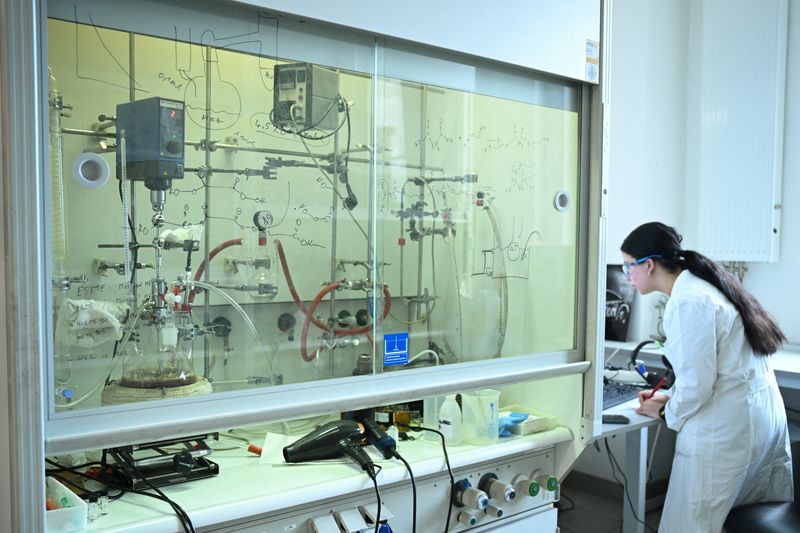By Patricia Weiss, Christoph Steitz and Oliver Denzer
FRANKFURT/HAMBURG (Reuters) -Europe’s chemical producers are facing fresh turmoil as U.S. import tariffs disrupt global trade, prompting customers to delay orders and hitting demand in a sector struggling to recover from the region’s 2022 energy crisis.
The European Union’s fourth-biggest exporting sector after machinery, automotive and pharmaceuticals, has been grappling in recent years with high production costs after gas and power prices soared following Russia’s invasion of Ukraine.
That and slowing demand due to struggles in key industries have led some companies in the 655-billion euro ($767 billion) sector to close sites and cut jobs to save costs.
U.S. import tariffs of at least 15% on goods from the EU have hit many of the industry’s main customers, including in the automotive, machinery and consumer goods sectors. Global automakers have booked billions of dollars of losses due to the damage done by President Donald Trump’s trade war.
Third-quarter earnings at European chemical companies are expected to fall 5%, following a 22% drop in the second-quarter, according to LSEG data.
“Since the energy crisis we’ve been hoping for a sustained recovery in volumes and margins in the European chemical sector,” said Thomas Schulte-Vorwick, an analyst at Metzler Research.
He said the tariffs and price and margin pressure due to stiff Asian competition at home and elsewhere made “a pretty toxic combination at the moment”.
The industry’s biggest players – notably BASF, Brenntag, and Lanxess – are somewhat protected from the direct import levies due to their strong U.S. presence but are still affected by cautious customer behaviour.
Customers are delaying orders, causing the companies which make chemicals used in everything from mattresses and car parts to chewing gum to cut or adjust annual outlooks in recent weeks.
BASF, the world’s largest chemicals maker, lowered its full-year outlook in July. The German group said some customers were placing orders only weeks in advance — down from the usual three to four months — due to caution over the global economy in the short term.
DOLLAR HEADACHE
Others, like Brenntag CEO Christian Kohlpaintner, warn that cheaper chemicals from China could flood the European market if competitors there divert exports from the U.S., as they face a possible surge in levies if Beijing and Washington fail to reach a deal before their tariff truce expires on November 10.
Companies are also feeling the pinch from destocking by clients amid the economic uncertainty as well as a weakening dollar that has been a headache for those booking their profits in euros.
Story Continues
